





Sodium glutamate
Description of substance
The glutamate of sodium represents monosodium salt of glutaminic acid - white crystal powder, soluble in water. At contact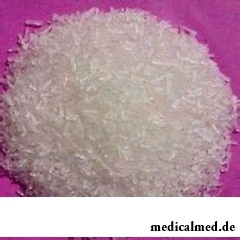 with liquids substance breaks up to anions of a glutamate and cations of sodium. In the food industry the glutamate of sodium carries the name of "the amplifier of taste" and is registered under the E621 code.
with liquids substance breaks up to anions of a glutamate and cations of sodium. In the food industry the glutamate of sodium carries the name of "the amplifier of taste" and is registered under the E621 code.
Chemical formula of substance - C5H8NNaO4.
Glutaminic acid (glutamine) is one of the most widely presented in the nature of replaceable amino acids which is a part practically of all proteinaceous products. Cow's milk, cheese, eggs, beef, meat of a duck, corn, green peas, tomatoes and some other belong to their number. A glutamine - biologically active agent, a neurotransmitter (the substance capable to carry out momentum transfer from one nervous cell to another), the main construction material of a human body, the nootropic means improving work of a brain. Glutaminic acid is also used as medical drug, rendering exciting and psychogogic action on a human body.
The amplifier of taste a glutamate of sodium is the derivative substance of glutaminic acid which is artificially synthesized by the person and for this reason has no above-mentioned advantages.
Action of a glutamate of sodium is based on strengthening of sensitivity of receptors of language due to increase in conductivity of nervous channels and force of nervous impulse - the effect lasting for 20 minutes after the use of nutritional supplement. Taste of a glutamate of sodium call "meat" or "bulyonopodobny" - it is capable to increase natural taste of products from meat, fish, a bird, vegetables, mushrooms and is widely applied in dishes of the Korean, Japanese and Chinese cuisines. In Japan taste of a glutamate of sodium is referred to "the fifth taste" (in addition to acid, salty, sweet and bitter) and call it "minds", that is "tasty".
Use of a glutamate of sodium
Industrial use of nutritional supplement originates in Japan where for long years seasoned dishes with extract of the seaweed rich with glutaminic acid.
Chemically pure substance produced by way of fermentation from carbohydrates was for the first time received in 1907 by Ikeda Kikunae - the employee of the Tokyo Imperial University which took out the patent for a way of production of food drugs according to which the first glutamate of sodium was made. Since 1960 the glutamate of E 621 sodium became usual additive in food, and its annual consumption in the world reached 200 000 tons.
The amplifier of taste a glutamate of sodium is widely used as a part of meat, the sausages, cubes, seasonings, sauces frozen and tinned semi-finished products, croutons of industrial production, chips, "fast food" and many other products.
This substance is brought in the list of raw materials:
- "Dishes tinned lunch for the special consumer. Specifications" (State standard specification 18487-80);
- "Concentrates food first and second lunch junk foods. Specifications" (State standard specification 50847-96);
- "Canned food fish. Pastes. Specifications" (State standard specification 7457).
Harm of a glutamate of sodium
During the numerous disputes and researches the glutamate of E621 sodium was recognized as conditionally safe nutritional supplement at the use in maximum permissible quantities. The evidence of explicit negative impact on a sodium glutamate human body in reasonable dosages is not revealed.
Nevertheless, the negative impact of nutritional supplement on a mammal organism was revealed. During the researches of the Japanese scientist Hirosi Oguro feeding rats with a sodium glutamate in number of 20% of all consumed food thinning of a retina of an eye and, as a result, total loss of sight was revealed. According to explanations to an experiment, the glutamate of sodium contacted receptors of cells of a retina, reducing ability of other cells to carry out nervous impulses. Besides, a large amount of nutritional supplement in the intraocular liquid washing a retina was revealed.
However 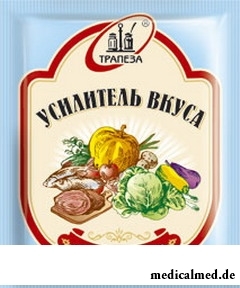 Hirosi Oguro expressed afterwards doubts about purity of an experiment as conditions in which experimental rats were put cannot be transferred to living people. "Thus, - the scientist claims, - consumption of substance in small amounts is admissible".
Hirosi Oguro expressed afterwards doubts about purity of an experiment as conditions in which experimental rats were put cannot be transferred to living people. "Thus, - the scientist claims, - consumption of substance in small amounts is admissible".
Harm of a glutamate of sodium at the systematic use in large numbers is shown by a so-called "syndrome of the Chinese restaurant": face reddening, necks, areas of a mouth, tachycardia, headache. Besides, it is established that E621 nutritional supplement damages brain cells, increases risks of a course of a disease of Alzheimer, and also causes narcotic accustoming including at children, promoting an overeating. As the producer, having pursued profit, actively adds the amplifier of taste a sodium glutamate to food, the consumer often passes many calories to unbalanced food that affects both its weight, and on health of digestive tract.
It should be noted that the glutamate of E621 sodium causes resistant dependence: using food with nutritional supplement constantly the person gets used to its saturated taste, and all other dishes seem to it fresh. Therefore the person eats much more food with specific taste, than would follow, weaning from such useful dishes as porridges, stewed vegetables, soups without "cubes" and salads.
To minimize harm of a glutamate of sodium, it is necessary:
- Whenever possible to avoid the use of "fast food" and semi-finished products;
- To eat the food cooked at home from bought in a supermarket or in the market of crude products;
- Not to use cubes, and to buy pure seasonings;
- It is attentive to read structure of a product on packaging, avoiding presence of E621 nutritional supplement and its derivatives.
The well-known drug "Viagra" was initially developed for treatment of an arterial hypertension.

Each of us faces from time to time that other people need the immediate help. We react to it on-raznomu:...
Section: Articles about health
Water with a lemon - idle time in preparation drink which supporters of a healthy lifestyle already managed to appreciate. Used in a warm look and on an empty stomach, it is one of the most useful prophylactics allowing to prevent tens з...
Section: Articles about health
Life of the modern woman is very difficult. Opportunities to realize itself are wide: it not only education and career, but also the most various hobbies from sport before needlework. It is not less important to build private life, paying an attention maximum to children, the husband, parents, friends. For all these affairs there is catastrophically not enough time therefore each of us tries to cut down as far as possible its expenses on necessary, but not the most fascinating housework. With it we are successfully helped by means...
Section: Articles about health
The advantage of swimming for the person is so high that this sport is not only the most popular, but also is widely applied in copper...
Section: Slideshow
Aspirin (acetylsalicylic acid) – one of those drugs which are known literally to all. It is available in each home first-aid kit, and many accept it at the first signs of an indisposition, often without having a fair idea of properties and a therapeutic eff...
Section: Articles about health
It is impossible to imagine human life in which there would be no plants. Practically in each apartment and any production room there are window plants, millions of people with pleasure are engaged in gardening and truck farming, many citizens spend free time on seasonal dachas. However we very seldom pay attention to those properties of our green pets who can make the neighbourhood with them unpleasant and even unsafe....
Section: Articles about health
All of us, unfortunately, should face flu nearly an every year. It would seem, so frequent disease has to be study...
Section: Articles about health
Stability of a hormonal background is one of the most important conditions of preservation of health of the woman. At the same time endocrine system – the thin device extremely sensitive to any external influences. Changes of an image жиз can become the reason of hormonal failure...
Section: Articles about health
Contrary to popular belief, the multiple sclerosis (MS) is not connected neither with sclerous changes of walls of vessels, nor with age forgetfulness and problems with concentration of attention. This disease has the autoimmune nature. Pathological process is expressed in degradation of nervous tissue and destruction of its enveloping layer - a myelin. Multiple damages of the central nervous system which are shown by decrease in sight, bystry fatigue, on become result of development of an illness...
Section: Articles about health
Kidneys perform the most important function of clarification of blood from those products of metabolic processes which cannot be used орг...
Section: Articles about health
Feeding by a breast - the integral part of ideal motherhood allowing to come into contact with the kid and to create to it healthy immunity since early years. Nevertheless, this important process in life of mother and child can be saddened laktostazy − by a delay of milts...
Section: Articles about health
The majority of gynecologic diseases prove three main signs, each of which speaks about need of a visit to the gynecologist. Certainly, it is possible to establish the exact diagnosis only after inspection, but on the basis of some signs it is possible to assume existence of this or that pathology. Let's consider symptoms of the female diseases which are found most often....
Section: Articles about health
For many spouses the question of planning of a family is one of the main. The choice problem effect at the same time comes out on top...
Section: Articles about health
Each failure in work of bodies and systems of a human body is, as a rule, shown by the whole complex of symptoms. In particular, malfunctions with health often cause emergence of cosmetic defects in the form of rashes on a face. Experienced doctors know that локализац...
Section: Articles about health
Ayurveda - the most ancient tselitelsky practice which came to us from India. It represents the doctrine about maintenance of physical, psychological and moral health of the person by means of the complex of procedures including a diet, cleaning of an organism, breathing exercises, massage, and in case of a disease - and medicinal therapy. The healers practicing Ayurveda assign very important part to spices, and at the heart of Ayurvedic drugs, as a rule, there are they. It is considered that spices not of t...
Section: Articles about health
Not without reason doctors say that 90% of diseases begin or develop because of misoperation of intestines. Disturbance of its functions связ...
Section: Articles about health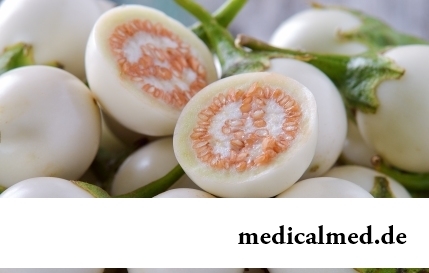
It is possible to find the extensive range of fruit and vegetables in modern shops. Russians already got used that on counters there is not only a seasonal domestic production, but the vegetables and fruit which are grown up in the countries with more comfortable conditions at all seasons of the year...
Section: Articles about health
Diapers for adults – individual one-time means of hygiene which in some situations is irreplaceable and from such situations any person is not insured. Though nobody perceives need of their use with enthusiasm, however without such means already problematic situation could be heavier....
Section: Articles about health
Producers of milk mixes for children assure: mixes are ideally balanced and adapted for needs of babies. In a sluch...
Section: Articles about health
Bathing in broths of medical flowers and plants (phytobathtub) was eurysynusic since Cleopatra who is a good judge in all that concerns beauty and health. And today phytobathtubs is the simple and available means allowing not only to remove nervous N...
Section: Articles about health
It is difficult to revaluate importance of kidneys for an organism. These bodies not only perform work on purification of blood of decomposition products and removal of excess liquid. They are responsible also for production of some hormones necessary for maintenance of a normality of a bone tissue, and also for a producing red blood cells – erythrocytes....
Section: Articles about health
The problem of diagnosis was and remains to one of the most important in medicine. From that, the reason недо will be how precisely defined...
Section: Articles about health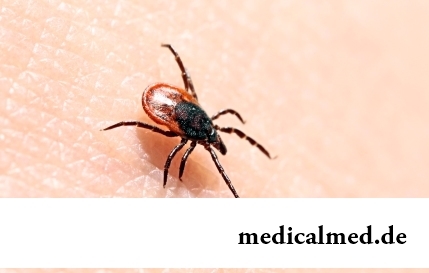
Tick-borne encephalitis – one of the most dangerous viral diseases which causative agents transfer and is given to people by ixodic mites. These are the small blood-sicking insects living in the considerable territory of our country. The person bitten by a tick can catch...
Section: Articles about health
Eyes – one of the most vulnerable areas on a face therefore age changes concern them first of all. Whether it is possible to keep look youth for many years and what procedures are offered for achievement of this purpose by cosmetologists? And maybe, the only option of rejuvenation is surgery – a blepharoplasty? Let's try to understand this question....
Section: Articles about health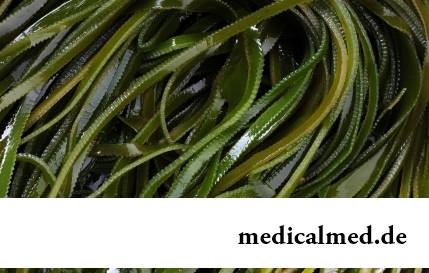
For residents of the countries of Southeast Asia various algas are an obligatory component of a daily diet. Their priest...
Section: Articles about health
The climax, or menopause is the normal process of the termination of genital function of the woman which is followed by serious hormonal changes in an organism. Usually the menopause begins at the age of 50-55 years, but characteristics of this process are very individual. T...
Section: Articles about health
The cosmetics intended for improvement of a condition of skin, nails and hair are used by each woman. Expenses on regular acquisition of the fashionable widely advertized products of well-known companies for many become very notable and significantly burden the family budget. Meanwhile, there is a number of inexpensive pharmaceutical drugs which can quite be applied in the cosmetic purposes. At the same time the effect of their use is often more noticeable, than result of use of the most expensive...
Section: Articles about health
